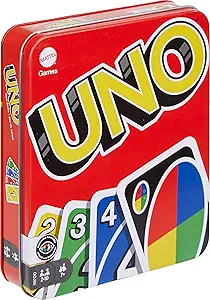These fantastic games come highly recommended for use in therapy by therapists around the globe. I recommend them because I have firsthand experience with each therapy game on this list and have seen them in action. These therapy games will produce amazing assessment information, enhance the therapeutic process, and strengthen the therapeutic alliance, too.
*Disclosure: This post contains affiliate links, including links to Amazon, and as an Amazon Associate, I earn from qualifying purchases. I only recommend resources, products, and services that I adore and find to be useful. If you happen to make a purchase using one of my affiliate links, I will earn a small commission, at no additional cost to you. Read more about our policies here.

Therapy Games
I love using games in therapy!
I can’t say enough about how valuable therapy games can be for the therapeutic process.
As renowned psychologist and play therapist, Virginia Axline, once said, using play in therapy offers an opportunity for “the child to ‘play out’ his feelings and problems just as, in certain types of adult therapy, an individual ‘talks out’ his difficulties.”
But play doesn’t have to be exclusive to children. Playing games in therapy is beneficial for clients of all ages. Therapy games can help with all kinds of things, including the following:
- Joining
- Assessment
- Breaking the Ice
- Family Bonding
- Creating Family Rituals
- Skill-building
- Emotional Expression
- Processing Unresolved Issues or Trauma
- Development and Use of Metaphors
Playing games in therapy can be really beneficial for creating a safe space that fosters openness and connection between client and therapist. And when you introduce a game to your client, it’s important to be clear about why you are recommending that particular therapy game. Making the process collaborative helps encourage client engagement and participation.
The Best Therapy Games for Therapists
These therapy games are my all-time favorite games to use in therapy sessions because they encourage interaction, elicit emotional expression, and most importantly, they are fun!
Many of the therapy games on this list are affordable and portable and that makes them perfect for mobile or in-home therapists. (You can keep a bin your trunk with a few games and art supplies, and you will always be ready for session.)
Here is a short list of the different kinds of therapy games in this collection.
- Therapy Games for Joining and Assessment
- Therapy Games for Kids
- Therapy Games for Teens
- Therapy Games for Families
Having a few games in your therapist toolkit will enhance your relationship with your clients and provide you with lots of joining, assessment, metaphor, and progress opportunities!
Therapy Games for Joining & Assessment
These therapy games are perfect for the joining phase of therapy. They work well for breaking the ice, allowing you and your clients to get to know one another, and gathering helpful assessment info.
Jenga
This incredible game is so versatile for therapy. You can use Jenga in therapy with kids, teens, families, and adults. You can paint the blocks different colors or write assessment/joining questions on some of the blocks for more therapeutic fun.
The Ungame
This is the ultimate therapy game. Designed to support self-esteem, connection, and self-awareness, The Ungame works well as an icebreaker in sessions and also offers opportunity for self-expression and skill-building. The game questions range from lighthearted to in-depth, helping you join with and assess your clients.
Uno
Uno makes an excellent therapy game not only because it’s an easy game to learn but also because of it’s versatility. If you play the regular way, it can provide lots of helpful assessment in and of itself. But you can capitalize on the colors, numbers and special cards, and get to know your clients even better. For example, you can add special rules, like every time you throw a reverse card, you have to share a happy memory.
Getting to Know You Thumball
This handy ball is an awesome tool to have in your toolkit. Open-ended questions offer easy opportunities for joining and assessment. Just toss the ball back and forth and answer the question your thumb touches. Works especially well for families and groups.
Therapy Games for Kids
Kids love games so it’s a no brainer to bring games into therapy. There are tons of games out there, but not all games work well for therapy sessions with kids. Here are my tried and true therapy game recommendations for working with children.
Story Cubes
These awesome little cubes feature an assortment of simple images that when rolled, allow your clients to create imaginative stories from what they see. You can use Story Cubes one on one or with multiple players, and the stories serve as great jumping off points for future session activities using art, psychodrama, and metaphor.
Race to the Treasure
This game is always a hit with young kids and it’s perfect for sibling and family sessions, too. Players work together, using strategy to build a path and beat the ogre. Race to the Treasure is a super fun skill-building game that fosters communication, problem-solving, and social skills.
Feed the Woozle
This cooperative game is a go-to therapy game for very young kids. It’s great for ages 3+ and you can play with 2-5 players, which makes it perfect for one on one sessions, sibling sessions, and family sessions. Players work together to feed the Woozle before they run out of treats. It’s a sweet game that promotes self-esteem, cognitive development, and social-emotional development.
Cauldron Quest
I love this game! Great for kids ages 6+ and work wells for 2-4 players. Players must work together to break the witch’s spell and save the kingdom. ✨ Game play usually takes about 20-30 minutes, which allows time for processing any metaphors or emotions that came up during game play.
Therapy Games for Teens
Teens can be tough to work with because of so many reasons: typical developmental issues, their natural drive toward independence, and family struggles. But working with teens can be extremely rewarding, too. Supporting them in their burgeoning identity formation and growth as a human can be amazing. Whether it’s video games, board games, or other kinds of competitive games, I have found that most teenagers love to game. Using therapy games with teenagers will not only help you join with them, but can teach lots about who they are and what’s going on for them. Here are my favorite therapy games to use with teenagers.
LetzTalk
This therapy game includes a set of cards with exploratory questions that can be used for joining and assessment. The questions cover topics that teens care about and encourages communication, self-esteem, self-expression, and safety in session. A great tool to get to know your teen clients better.
Totika Therapy Game Set
This super versatile game set was specifically designed for use in therapy. You can use it with all clients, so it’s a worthy investment. But I especially love to use it with teens. It’s like Jenga, but comes with accompanying sets of cards that target things like self-esteem, life skills, and emotional intelligence.
Taboo
Taboo makes a great therapy game, especially for teenagers, thanks to the higher-level strategy required in getting family members (or your therapist) to guess the secret word. A game that promotes communication skills, concentration, and attention to detail, Taboo offers a fun way to connect with your clients and promote skill-building along the way.
Sussed?
Sussed? is an updated, more creative version of Would You Rather? that helps you get to know your clients, and help them get to know themselves. For example, I’d rather have unlimited access to 1) every flavor of popcorn, 2) adorable puppies, or 3) designer sweaters. Sussed? not only encourages critical thinking skills, but it promotes social interaction and bonding. It comes in four versions, but I prefer the Cool Blue deck because it hits a little deeper. But all of them are great for joining and breaking the ice in therapy.
Therapy Games for Families
I absolutely love to use therapy games in family therapy. You can learn so much about a family system by playing games with them. Using therapy games with families allows you to break the ice when there is a lot of tension in the room. Games also provide opportunity for assessment, bonding, and restructuring of negative patterns within the family system. Here are my all-time top favorite therapy games for families.
Telestrations
Telestrations is much fun for families, plus it’s a great game for targeting patterns of interaction and communication. As an art therapist, I also love the visual aspect of the game, and like to process some of the imagery that comes up during game play. This game is a blast and works well for families of up to 8 members.
Forbidden Island
When it comes to cooperative games, Forbidden Island might be my favorite. This game works so well for family therapy not only because players have to work together, but also because each player has a unique special ability that helps save the day. That kind of teamwork, combined with the fact that players are working to get off of a sinking island, make wonderful metaphors to use in family work.
Pocket Ungame Families Version
Another great version of The Ungame, the Pocket Ungame Families Version is a compact therapy game that travels well. I’ve used this game in countless family sessions over the years and it never disappoints. Questions range from deep to light-hearted, and the question cards allow for several variations of the game. Break the ice and help families connect with this simple yet substantial therapy game.
104 Activities Book
I have used so many games from this beloved book, 104 Activities That Build: Self-Esteem, Teamwork, Communication, Anger Management, Self-Discovery, Coping Skills, by Alanna Jones, in therapy. One of my favorites for family therapy is the Cup Stack game. Players must work together to build pyramid of cups only using string and a rubber band. Great for assessment of family patterns, but also for bonding work and relational change. I prefer to use Solo cups, but any lightweight plastic cups will do.
Beat the Parents
This game is a ton of fun for families, and it does a great job promoting family bonding. It’s especially great for families experiencing sibling conflict. Siblings unite in this trivia game and they work together to beat the parents. One criticism is that the trivia questions are not the most culturally diverse, so it could help to add your own questions to the mix.
Speed Charades
Charades is such a great game for families who struggle with communication. Acting things out versus strictly talking taps a different part of the brain and body. This kind of communication game offers families an awesome opportunity to build communication skills, deal with conflict, and improve patterns of interaction. It’s great for bonding, too!





















